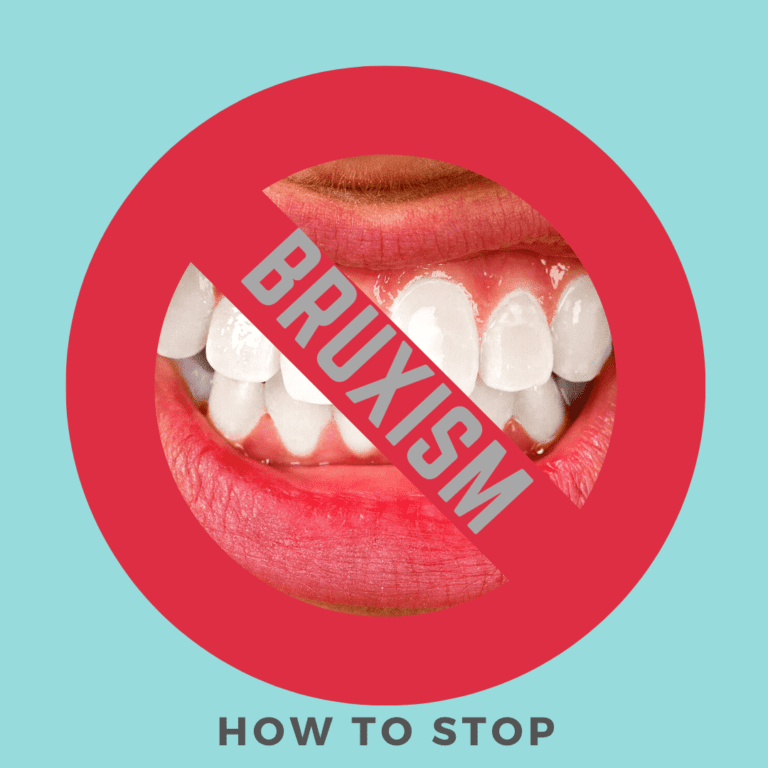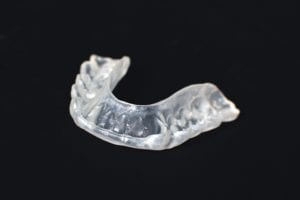Bruxism: How to Stop

Did you know that stress can affect your oral health? The body responds to stress in a variety of ways. Some of these responses are beneficial and help us to address the cause of our stress, while others are more detrimental. One of these responses to stress can even damage your teeth and put your oral health in jeopardy.
Bruxism, more commonly referred to as teeth grinding or clenching, is a common response to stress that causes a number of dental and general health conditions. In addition to being responsible for damaged or prematurely worn teeth, bruxism can also cause headaches, neck and shoulder pain, tinnitus, and temporomandibular joint disorder (TMD). Since bruxism is so detrimental to both your oral and overall health, it is a behavior that must be stopped immediately.
However, stopping bruxism is much easier said than done. This is primarily because it is an unconscious habit. The majority of people affected by bruxism experience teeth grinding or clenching at night when they are asleep. This means that some people who have bruxism may not even know they have it until their dentist notices the wear marks on their teeth.
Although bruxism can be a challenging behavior to stop, there are some methods that can be taken in order to stop or minimize the behavior. These include:
Night Guard

If your dentist believes you are affected by bruxism, they will almost definitely recommend you get a night guard. In most cases, night guards have been proven to be highly effective in the treatment of bruxism and are one of the most popular treatments for stopping bruxism. Like their name suggests, night guards are specialized dental mouth guards that are specifically worn when you sleep. They are made from acrylic and are designed to fit over either the top or bottom arch.
Night guards work by creating a barrier between the top and bottom teeth. This barrier protects the opposing teeth from damage during grinding, makes it hard to grind or clench your teeth, and helps to relax the jaw muscles. Additionally, some specialized night guards may also be made to slightly reposition the jaw.
To stop bruxism, it is recommended to opt for a customized night guard fabricated by an experienced dental lab rather than choosing the “boil and bite” over the counter method. For starters, a dental lab has specialized equipment that will not only help them create the perfect fit, but it will allow them to make the right type of night guard for your symptoms. Additionally, do-it-yourself night guards are often fitted incorrectly, which can increase symptoms.
Invisalign
If your teeth or bite are misaligned, Invisalign may be another way to stop bruxism. This is because misalignments in the mouth are a predisposition for bruxism and can even intensify symptoms. Properly aligning your teeth and bite decreases the pressure on the jaw joint and can reduce or eliminate bruxism symptoms. Therefore, your dentist may recommend clear aligner therapy to treat your bruxism.
Stress Management
Another key element to stop bruxism is stress management. Even though there is still research being done to determine the exact cause of bruxism, a number of sources have already noted that stress is definitely a factor. Therefore, your dentist may recommend counseling or other stress management behaviors to reduce your stress levels.
While stopping bruxism is no easy feat, these methods have been shown to eliminate or minimize teeth grinding and clenching. However, stopping bruxism can vary from patient to patient, and you may find that one method works better for you. With that being said, most bruxism treatments are centered around night guards and stress management.






Recent Comments